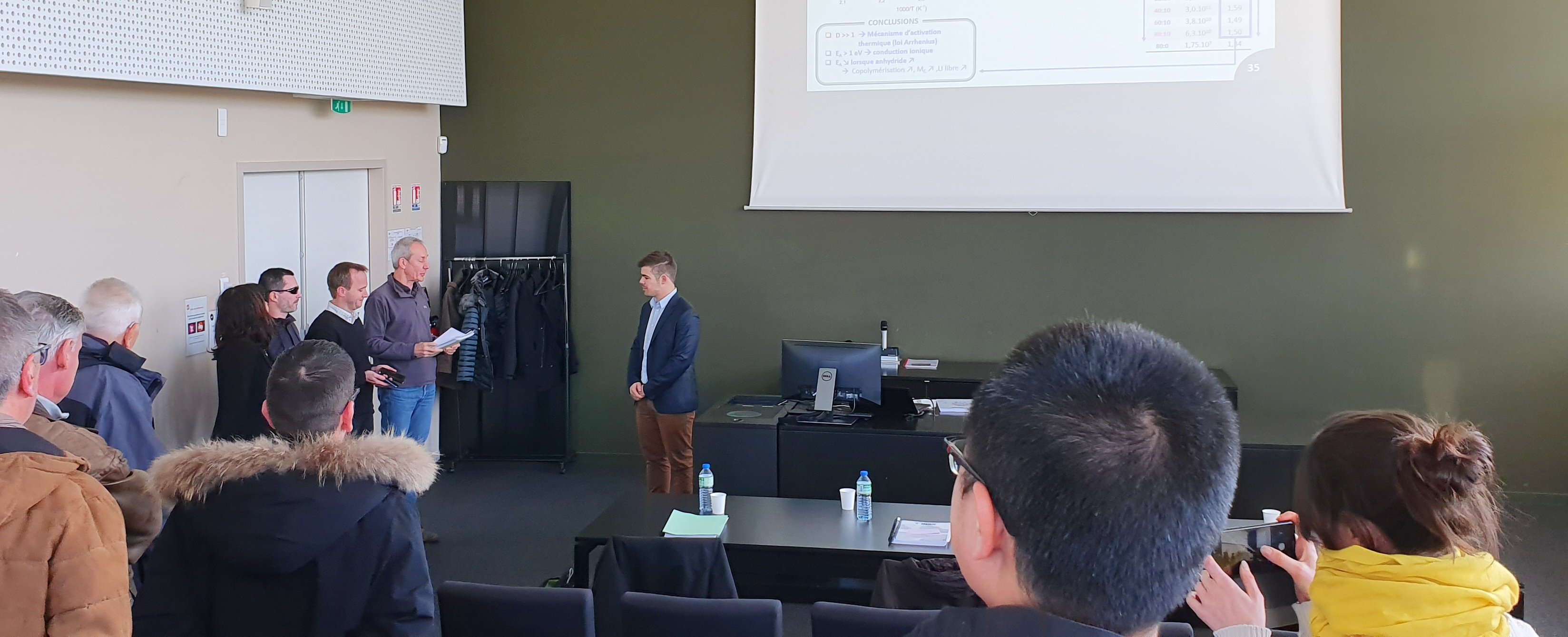Phd Thibaut LEFORT
“Epoxy/ionic liquid networks with and without anhydride:
study of polymerization mechanisms and dielectric properties”

Thursday 12/12/2019, Thibaut Lefort has obtained the title of Doctor of Materials of Lyon university after a high quality viva. Hence, the thesis jury has strongly encouraged him to candidate for a Ph.D award granted by INSA in the energy category.
His work “Epoxy/ionic liquid networks with and without anhydride : study of polymerization mechanisms and dielectric properties” has been realised with a CIFRE grant in sub-program new thermoset composite materials of the High Voltage Equipment program of SuperGrid Institute. Professors Sebastien Pruvost and Jannick Duchet, from the laboratory IMP@INSA have supervised his researches.
The following abstract describes the subject of the research.
Abstract
Ionic liquids (Ils) are salts exhibiting a low melting temperature (< 100 °C). They display interesting properties such as good thermal and chemical stabilities and a high ionic conductivity. For example, these properties make them attractive as lubricant, electrolyte or additive in polymer science. In this thesis, ionic liquids are proposed as a solution for charge accumulation occurring in epoxy based insulators of gas insulated substations (GIS), under high voltage direct current (HVDC). An increase of conduction phenomenon is researched in order to reduce charge accumulation on the surface of insulators during their service. The influence of the addition of IL on the polymerisation of the epoxy network and its properties has been evaluated with and without a conventional anhydride hardener, using a phosphonium based IL, known as reactive and initiator of the epoxy polymerisation. Polymerisation mechanisms were identified by nuclear magnetic resonance (NMR) in liquid phase and differential scanning calorimetry (DSC), the networks and their microstructure by dynamic mechanical analysis (DMA), and their morphology by electronic microscopy (SEM or TEM). Finally, dielectric properties were studied by broadband dielectric spectroscopy and DC conductivity measurements and were discussed in function of the architecture of the different networks.
Keywords
epoxy, ionic liquid, polymerisation, thermoset networks, microstructure, morphology, dielectric spectroscopy, electrical conductivity, composite
Thesis director:
S. Pruvost
Thesis co-director
Jannick Duchet


